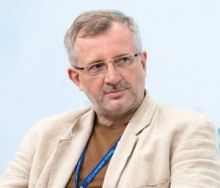Throughout the two-day Yalta European Strategy forum, delegates from Europe and other parts of the world had a unique opportunity to listen to most prominent Ukrainian politicians: President Viktor Yanukovych, members of the ruling Party of Regions, and an opposition representative. What picture of the Ukrainian political scene emerged from the conference?
The Ukrainian government seems to stand firm and united. Cabinet members believe their policies to be consistent, effective and beneficial for the country’s future. The recent rapprochement with Russia is widely perceived as a major pillar of Ukrainian foreign policy. However, the question about the ultimate direction that Ukraine should take – a pro-European course or a pro-Russian one – posed to decision-makers across party lines, remained conspicuously unanswered. And yet, sooner or later Ukraine will have to choose a suitable model to follow, a reform path in line with its long-term policy goals. Ukrainians will also have to be persuaded to make the necessary sacrifices for the sake of future prosperity, an inherent part of all major transformations. I may be wrong, but so far I have not seen much readiness to take this gamble.
The Ukrainian government remains upbeat about its track record – in Yalta, the focus was on positive developments only. It would certainly be unfair to overlook the cabinet’s many successes in stabilising the country’s finances, making necessary cuts in the bulging budget deficit, or launching bold investment plans. Still, as the conference progressed, a less rosy picture emerged, one area of concern being the latest decision of the Constitutional Court, which in legal terms has set the country back by six years. Most international observers, including those highly sympathetic to the Ukrainian cause, find such developments hard to understand and unnecessary. In private, we asked each other whether the Ukrainian president needed more power in order to be more efficient. However, the current situation proves this theory wrong, since a small but consolidated parliamentary majority is entirely sufficient to implement reforms and carry out any political agenda within the framework of the present Constitution.
As it happens, sensational news tends to eclipse other developments, no matter how positive they may be. Those gathered in Yalta overlooked the push for radical reforms of the state media structure. As a direct participant in a similar “revolution” in Poland almost 17 years ago, I am following this story very closely.
The Yalta conference brought a range of questions particularly interesting for foreign delegates: What is the purpose of the consolidation of power beyond the pursuit of routine economic, fiscal and financial policies? Are we likely to see a major local government reform? Are the Yanukovych team and his Party of Regions willing to empower regional authorities? Last but not least, will Ukrainian courts be truly independent, or independent in name only?
Such concerns were raised by Dominique Strauss-Kahn, the Managing Director of the International Monetary Fund, who said, “There is plenty of money in the world. You can lower taxes, but what is crucial for people who invest their money is where they can spend it.” For these people, confidence in state institutions, in the judiciary and in the fiscal system is more important than the temptation of low taxes.
Today nobody is questioning the legitimacy of Yanukovych’s mandate won in democratic elections. Nevertheless, the international public is likely to closely monitor the developments in Ukrainian politics. A fledgling democracy needs to be protected and taken care of in things big or small. I am positive that the Ukrainian people and their leadership share this view.







